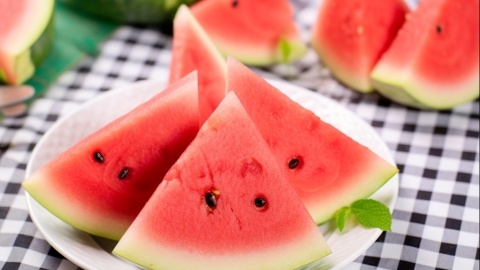How long after eating bayberry can one eat watermelon?
Generally, it is more appropriate to wait 1-2 hours after eating bayberries before consuming watermelon. The detailed analysis is as follows:

Bayberries are rich in fruit acids, which stimulate gastric acid secretion and aid digestion after consumption. Watermelon contains a significant amount of water and sugar, making it relatively easy to digest. If watermelon is eaten immediately after bayberries, the mixture of the two foods in the stomach may interfere with the normal digestion process, potentially causing discomfort such as indigestion, stomach bloating, or stomach pain. Waiting 1-2 hours allows sufficient time for the initial digestion of bayberries in the stomach. Consuming watermelon after the bayberries have moved into the small intestine can reduce adverse effects on digestive function.
Both bayberries and watermelon contain certain amounts of sugar, especially watermelon, which has a relatively high glycemic index. Consuming these two fruits consecutively within a short period may lead to a rapid increase in blood sugar levels. For individuals with unstable blood sugar levels, such as diabetic patients or those with insulin resistance, this is not conducive to blood sugar control. Spacing the consumption of these fruits by 1-2 hours allows the body time to metabolize and regulate the sugar from the first fruit, thereby reducing significant fluctuations in blood sugar levels.
Pregnant women can moderately consume these two fruits to supplement nutrition. However, diabetic patients should limit their consumption of watermelon, as it contains large amounts of sugar that can easily cause blood sugar fluctuations.








